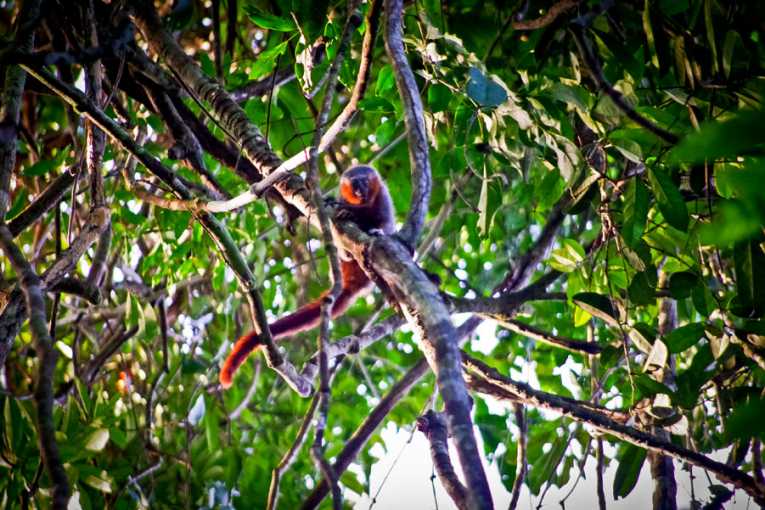Amazing as it seems, in a world fully hooked into the internet, with skies saturated by satellites and every delve pored over by cohorts of scientists, nature still has surprises to spring on us - even in the most threatened of landscapes. And one such surprise has just been found skittering in the canopy of the Amazon, in Brazil. An expedition to one of the most devastated parts of the Amazon, in the NW corner of Mato Grosso, has added a new monkey species to the primate family tree - a titi monkey with tail and head features unlike any other in the region.
More than 500 species logged
But that's not all. The WWF-Brazil expedition to the so-called 'Deforestation Crescent' - which has long been pillaged by illegal loggers, and is home to vast cattle farms - also notched up 208 species of fish, and 313 species of birds.
That potentially includes several new species of fish and plants. The mixed-up area of rainforests and cerrado was also found to be home to giant anteaters, armadillos and otters, as well as jaguars and ocelots.Geographer Gustavo Irgang, coordinator of the expedition, is elated. "We fulfilled our schedule, there were no serious setbacks and we got back to our laboratories and study centers with the possible discovery of new species. We only have reasons to celebrate," he said in today's press release.
Titi monkey discovery a 'piece in puzzle'
The jewel-in-the-crown for the team is undoubtedly the new monkey species, a member of the Callicebus genus.
The renowned Emilio Goeldi museum is to undertake a 6-month study to confirm the discovery, and give the species its official name.
"By integrating this animal to a reputable collection such as that of the Goeldi museum we have taken an important step towards gaining better knowledge of the fauna in the northwest Mato Grosso region which is still a puzzle with many pieces missing", said Julio Dalponte, the discoverer of the new monkey species.
Creeping threats in Mato Grosso
The areas where the expedition took place, back in December 2010, are however very much under threat from encroaching settlement. Illegal logging and fishing are degrading the environment, and social tensions are rising over rights to land, and the exploitative nature of work in the local plantations and ranches, says WWF-Brazil. It is hoped that this expedition may help to ease those threats.
WWF-Brazil thinks that the major discoveries from this expedition may give added impetus to efforts to improve the management of Mato Grosso's protected areas. That help is needed soon. Over half of all the deforestation in the Amazon in the first six months of 2011 happened in Mato Grosso. The new-to-science titi monkey needs action fast, if its home is not to disappear before the world has a chance to appreciate it.
Top Image Credit: The new monkey species discovered, a member of the Callicebus genus © Julio Dalponte/WWF










